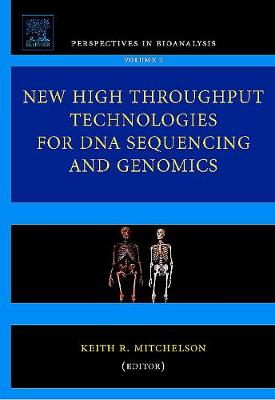Perspectives in Bioanalysis
1 total work
New High Throughput Technologies for DNA Sequencing and Genomics
Published 5 February 2007
Since the independent invention of DNA sequencing by Sanger and by Gilbert 30 years ago, it has grown from a small scale technique capable of reading several kilobase-pair of sequence per day into today's multibillion dollar industry. This growth has spurred the development of new sequencing technologies that do not involve either electrophoresis or Sanger sequencing chemistries. Sequencing by Synthesis (SBS) involves multiple parallel micro-sequencing addition events occurring on a surface, where data from each round is detected by imaging.
New High Throughput Technologies for DNA Sequencing and Genomics is the second volume in the Perspectives in Bioanalysis series, which looks at the electroanalytical chemistry of nucleic acids and proteins, development of electrochemical sensors and their application in biomedicine and in the new fields of genomics and proteomics. The authors have expertly formatted the information for a wide variety of readers, including new developments that will inspire students and young scientists to create new tools for science and medicine in the 21st century.
Reviews of complementary developments in Sanger and SBS sequencing chemistries, capillary electrophoresis and microdevice integration, MS sequencing and applications set the framework for the book.
New High Throughput Technologies for DNA Sequencing and Genomics is the second volume in the Perspectives in Bioanalysis series, which looks at the electroanalytical chemistry of nucleic acids and proteins, development of electrochemical sensors and their application in biomedicine and in the new fields of genomics and proteomics. The authors have expertly formatted the information for a wide variety of readers, including new developments that will inspire students and young scientists to create new tools for science and medicine in the 21st century.
Reviews of complementary developments in Sanger and SBS sequencing chemistries, capillary electrophoresis and microdevice integration, MS sequencing and applications set the framework for the book.
